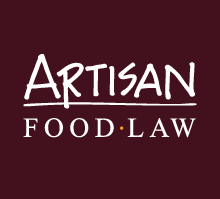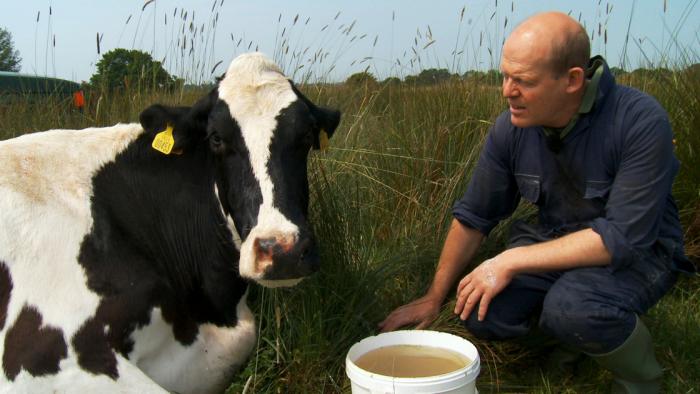The Food Standards Agency abandons raw milk prosecution – did the penny finally drop?
In January earlier this year the Food Standards Agency (FSA) announcedthat it was to prosecute Steve Hook, the pioneering Dairy Farmer of the Year 2012 finalist, of Hook and Son and Selfridges for selling raw milk by means of a vending machine. The news came as no great surprise since Hook and Son’s regular newsletter on 15 January foreshadowed the FSA’s announcement in a brief Stop Press statement:
“… the Food Standards Agency served a summons on Steve to appear in court at Westminster in February to face charges of illegal selling of raw milk via a vending machine at Selfridges store in London.”
The irony was that the FSA’s action came while Steve Hook was celebrating the premiere of a new documentary film all about his pioneering work. ‘The Moo Man’ premiered at Robert Redford’s Sundance Film Festival in the USA a couple of days before the FSA’s announcement. Steve Hook attracted much admiration for his work in the States where he has been dubbed the ‘Cow Whisperer’ and stands alongside ‘Horse Whisperer’ Buck Brannaman and ‘Dog Whisperer’ Jan Fennell.
The sale of raw milk is one of the few areas of food law not regulated by the EU. The custom and practice of EU countries being so diverse that it is left to each country to determine what arrangements to make. In England sales are regulated under Schedule 6 to the Food Hygiene (England) Regulations 2006. Similar legislation exists in Wales and Northern Ireland, but Scotland banned the sale of raw drinking milk in 1983.The Regulations permit a farmer to sell raw milk “at or from the farm premises where the animals from which the milk has been obtained are maintained … to the final consumer for consumption other than at those farm premises”. Selling raw milk in contravention of these regulations is an offence.
The FSA have long accepted that the sale of raw milk at a farmers’ market is a sale “from the farm” and is where raw milk may commonly be purchased. When the issue was first raised by the FSA in early 2012 Selfridge’s then food director, Ewan Venters, was reported as saying:
“We have always supported unique products like raw milk. We see ourselves, like many farmers markets, as a platform to launch a variety of choice for our customers to enjoy.”
Selfridges, whilst perhaps not your average farmers market, clearly did not believe they were doing anything wrong. The relevant facts of the case are quite straightforward, there was little to investigate, yet it took the FSA over a year to decide on bringing a prosecution:
"The decision [to prosecute] follows a detailed investigation, after vending machines [sic] dispensing raw cow milk were installed at Selfridges, in 2011. The FSA will consider taking action where it has evidence that regulations have been breached."
Raw milk vending machines have been available throughout Europe since 2005 and Italy, for example, has some 14,000 located throughout the country. There are also vending machines being used for pasteurised milk elsewhere in the UK.
While the Director of Food Safety’s report to the March 2012 meeting of the Board of the FSA stated that:
“Sales from vending machines on farm premises or at a farmers market would be permitted under current domestic controls in England, Wales and Northern Ireland but vending machines cannot be placed in retail outlets.” (paragraph 4.13)
The Director provided no legal basis for this assertion. The point would have been central to the FSA’s case. What is a farmers’ market if it is not a retail outlet? Is not that the whole point of the market? Is it simply the fact that Selfridge’s market has a roof over its head? Well, so do many farmers’ markets where, according to the FSA, Steve Hook could have set up his vending machine just like he did at Selfridges. The distinction is wholly arbitrary and raises no substantive hygiene issues.
Steve Hook commented at the time:
“It is regrettable that the FSA has decided to bring this test case against a small family farm, which we believe has in every respect complied with the strict regulations of the 2006 Act governing sales of unpasteurised milk in England.
The vending machine in Selfridges’ London Food Hall had been approved by local environmental health officers and while we acceded to the FSA’s request to remove it in March last year, we have always maintained that the sale of raw milk through vending machines that are the property of the dairy producer and are maintained and stocked by him, is entirely within the spirit of the law.
We are therefore determined to fight this prosecution.”
The prosecution against Selfridges was dropped in early April. Selfridges gave an undertaking that, pending the outcome of the FSA’s review, raw cows' drinking milk would no longer be placed on sale in its premises. The prosecution against Steve Hook, however, remained ongoing.
Hook and Son have provided a full account of the 24 March hearing at Westminster Magistrates Court in their 2 April newsletter. It was reported that a similar offer to drop the prosecution had been made to Steve Hook but since it had only been made late on the previous day a request for more time to consider it was granted. The following week, the 9 April newsletter reported the offer was still under consideration. It also pointed out that this was the undertaking that had already been provided when Hook and Son agreed to remove the vending machine from Selfridges in early 2012. This raises the question why did the FSA bring the prosecution when the undertaking it sought had been provided before the decision to prosecute was taken?
The case was scheduled to return to Westminster Magistrates Court on 24 April, as irony would have it the day before The Moo Man premiered at the Sundance London Film and Music Festival. Finally, last week on 8 May, it was reported that the FSA had dropped proceedings against Steve Hookwho had, it seems, given the same undertaking again.
The FSA, as a public body vested with the authority to bring criminal proceedings, also has a responsibility to exercise discretion. There was no risk to public health, indeed many would argue quite the contrary, and the undertaking it sought had been given long before the decision to prosecute when Steve Hook and Selfridges promptly withdrew the vending machine a year before in response to the FSA's concerns.
There is a long line of judicial authority over the decades where the courts, even where they felt obliged to uphold a conviction on appeal, have clearly expressed the view that a prosecution ought never to have been brought. The FSA would have been wise to have taken on board at the outset one commentator’s view expressed in a leading legal textbook* on criminal law:
“Little purpose is served by adding to the large numbers of truly guilty defendants the small number of persons who are morally innocent.”
Who knows, perhaps the penny dropped and this point finally registered with the FSA, albeit late in the day. It seems strange to offer to drop a case on an undertaking, knowing that undertaking had been given long before the prosecution ever began. It rather looks like a decision the FSA regretted and wanted a way out. Sense prevailed in the end, but not until a hard working small dairy farmer was put through a great deal of anguish, and to add to this a not insignificant amount of public money has been wasted at a time when the FSA has so many other, far bigger, priorities on its hands.
*Baker D J, Glanville Williams Textbook of Criminal Law, 3rd edition, 2012, para 36-009





